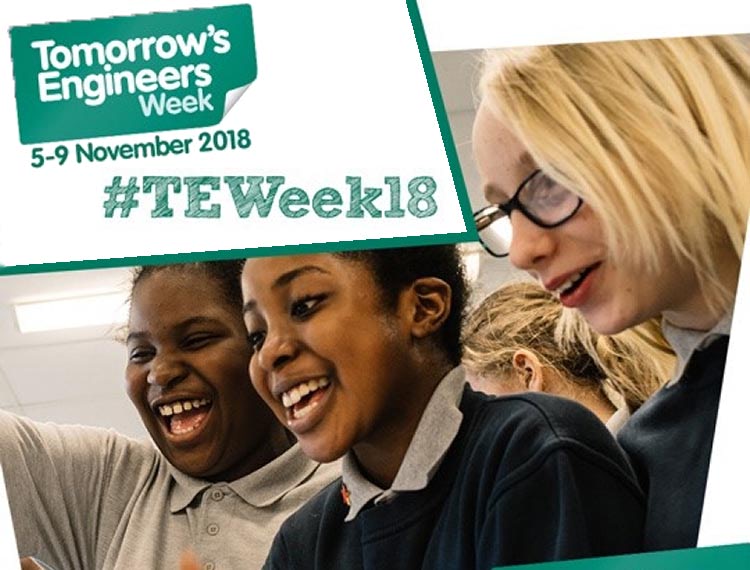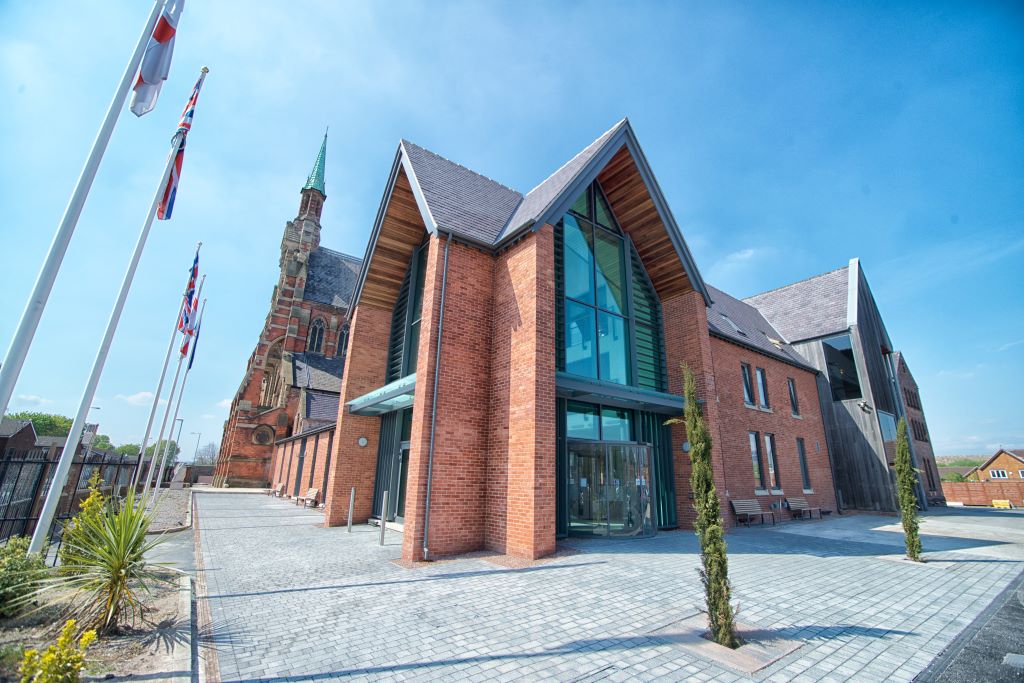Parents prioritise careers that make a difference #TEWeek18

Tomorrow’s Engineers Week takes place from 5-9 November 2018 and aims to change perceptions of engineering among young people, their parents and teachers and to inspire future engineers. Tomorrow’s Engineers Week is led by EngineeringUK.
Parents want their children to have a future that makes a positive difference to society, according to new research released to mark the start of Tomorrow’s Engineers Week.
Almost two-thirds (64%) of parents want their children to have a job that is something they can be proud of and two-fifths (38%) want their child to make a positive difference to society with their careers.
Other parental priorities for their child’s future work are being happy (89%), reliable income (74%) / salary (48%) and excitement (41%).
While just one in five (21%) parents were told that they could have a job that makes a difference to the world when they were young, parents are now taking steps to ensure their children have better information.
More than six in ten parents of Generation Z children (64%) have had discussions about how their future jobs could make a difference to the world and many believe that engineering is a career that could make this happen.
While parents of 11-18 year olds feel that teaching (50%) or being a doctor (48%) are the careers most likely to enable their child to do good in the future, 43% believe becoming an engineer would make a difference.
Similar numbers felt nurses (40%), police (37%), vets (37%) or social workers (36%) would also be positive career choices.
Tomorrow’s Engineers Week launches today (5 November) to inspire young people and parents with examples of engineers on a mission to make a positive difference to society.
Engineers featured include a dynamic dozen all working on exciting projects that make a positive difference to the world.
Stars include Jack Hooper from doppel, who has engineered a device to improve mental health and two engineers from Robertson’s Engineering, who have saved the lives of otters with an innovative road crossing.
Dr Serena Cunsolo from University of Portsmouth is also involved. She was part of the Ocean Cleanup team and is now looking at how plastics can be prevented from entering our rivers and oceans.
Jack Hooper, Co-Founder of doppel, commented:
“My work shows that anything is possible with engineering. Tackling some of the biggest issues in the world, like improving mental health, needs to see engineers like me working alongside other professionals, in new ways, to create new solutions. Anyone who wants to make a positive difference to the world should consider a career in engineering.”
The engineers on a mission will be the stars of films and a unique Tomorrow’s Engineers Week Big Assembly which offers schools across the UK the chance to take part in the same assembly on engineering careers at the same time.
The Tomorrow’s Engineers Week Big Assembly takes place on Wednesday 7 November and over 350 schools have already signed up to the Big Assembly with 35,000-plus students expected to take part.
The Tomorrow‘s Engineers Week Big Assembly is sponsored by BCS, ICE, IET, IMechE and Year of Engineering and supported by other professional institutions and will also be available on demand after the live broadcast has finished.
Broadcaster Fayon Dixon, who will host the Tomorrow’s Engineers Week Big Assembly, said:
“I’ve seen first hand how engineers can make a huge difference in the world and it’s encouraging to know that parents think likewise. Every year I host events for young people at The Big Bang Fair and see them inspired by engineers who are helping to save the environment, develop medical procedures, keep us safe, help animals and even entertain us!
“The first ever Tomorrow’s Engineers Week Big Assembly is the perfect opportunity for young people to find out more about how engineering careers can make a positive difference to society – and it’s not too late for schools and students to sign up!”
Independent research firm, Sapio Research, interviewed over 2,000 parents of 11-18 year olds and the results were weighted to be representative of the UK population.
About EngineeringUK: A not-for-profit organisation, which works in partnership with the engineering community to promote the vital role of engineers and engineering and to inspire the next generation. EngineeringUK leads engagement programmes The Big Bang and Tomorrow’s Engineers, and produces the annual Engineering UK State of Engineering report.
About The Big Assembly: The Tomorrow’s Engineers Week Big Assembly will be hosted live at 10:30am on 7 November and then available for download. The Tomorrow’s Engineers Week Big Assembly gives young people the chance to hear directly from engineering professionals about their work, their inspiration and route into the industry. And there’s the opportunity to get involved live via social media. Schools can register to take part at
The Tomorrow‘s Engineers Week Big Assembly is sponsored by BCS, ICE, IET, IMechE and Year of Engineering and supported by other professional institutions.
About The BCS: The Chartered Institute for IT recognised many years ago the need to ensure a high quality teaching experience for young people, but also recognised that there was often little in the way of support for computing teachers in schools. That’s why it established the Computing At School (CAS) network in 2008. CAS is a free to access peer-to-peer on-line support network. As well as providing access to more than 6,500 free, relevant teaching resources, teachers are able to share experiences and ask for help, guidance and advice. This all helps our aim of making sure that CAS is at the forefront of providing thought leadership to the CAS Community and beyond so that CAS continues to be the principal point of contact for teachers of computing and computing science.
About Institution of Civil Engineers: The Institution of Civil Engineers (ICE) qualifies professionals engaged in civil engineering, exchanges knowledge and best practice, and promotes their contribution to society. ICE members help to create the structures and systems that sustain society and shape the world. They are responsible, for example, for designing, building, maintaining and improving bridges, roads, canals, hospitals, schools, airports, power stations and railways.
About Institution of Mechanical Engineers: Established in 1847 and has some of the world’s greatest engineers in its history books. It is one of the fastest growing professional engineering institutions. Headquartered in London, we have operations around the world and over 117,000 members in more than 140 countries working at the heart of the most important and dynamic industries such as the automotive, rail, aerospace, medical, power and construction industries.
About Institution of Engineering and Technology (IET): One of the world’s largest engineering institutions with over 169,000 members in 150 countries. We are also the most multidisciplinary to reflect the increasingly diverse nature of modern engineering.
About The Year of Engineering: A government campaign, which celebrates the world and wonder of engineering. It also forms an important part of our Industrial Strategy which is committed to boosting engineering across the UK, ensuring everyone has the skills needed to thrive in a modern economy.











Responses